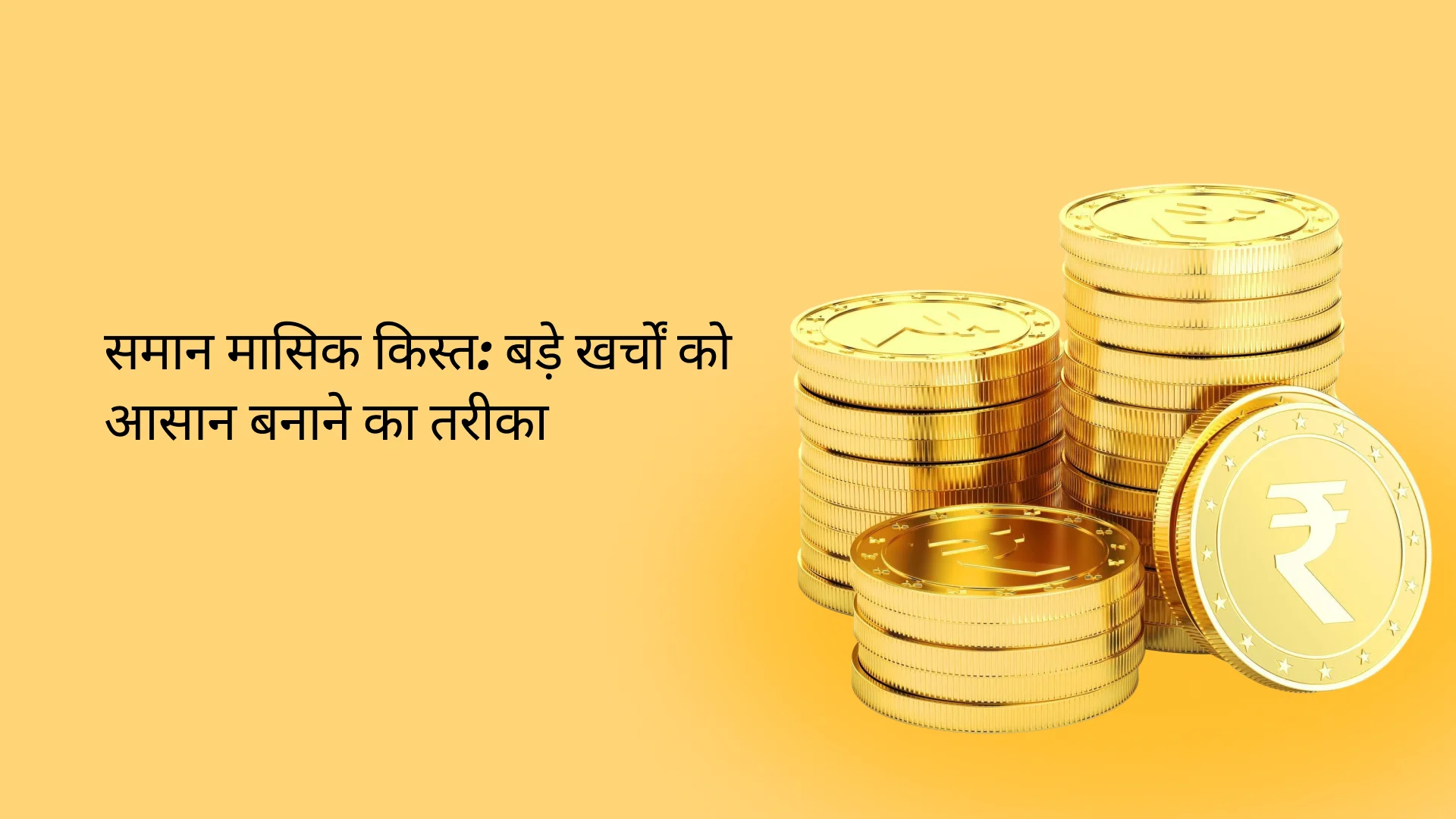What Is Personal Loan Settlement? How Its Effects On Your Credit Score

A personal loan can take care of your financial needs when you are short on funds or need to make an expensive purchase. However, as a borrower, it is important to understand your repayment capacity before taking up any loan. Any borrower who is unable to repay the loan amount on time or to its full capacity usually must settle the loan with the lender. This is known as personal loan settlement.
This blog explores how to settle personal loan, weighs its pros & cons and the impact on credit score.
Table of Contents
ToggleWhat is Personal Loan Settlement?
The personal loan settlement is an arrangement between the lender and borrower to close the loan by paying a lesser amount. This usually happens when the borrower is unable to repay the loan due to circumstances such as job loss, illness or any other financial constraint. While a loan settlement helps you clear off your loan, it comes with a significant negative long-term impact on your credit score.
How Does Personal Loan Settlement Work?
If a borrower is unable to repay the loan for an extended period, then the lender may offer the option to settle the loan. Considering the situation of the borrower, they may settle on a lesser amount to close the loan. The amount is decided by the lender factoring in the repayment capacity and borrower’s current situation. This provides the borrower with the opportunity to pay off the loan. However, the borrower will have a “settled” status on their credit report.
Advantages and Disadvantages of Loan Settlement
To understand is loan settlement is the right choice for you, it is important to weigh the pros and cons of it:
Advantages of Loan Settlement
Debt Reduction: Settlement on loan is a good solution if the borrower is unable to repay the loan during the loan tenure
Financial Relief: Loan settlement gives you the option to settle the loan with a one-time payment, making you debt-free.
Protects from Legal Consequences: Defaulting on loan instalments can lead to serious consequences like asset confiscation or legal action (in extreme cases). Settlement on loan offers you the option to clear off your loan.
Disadvantages of Loan Settlement
Impact on Credit Score: Loan settlement is shown as “settled” in the credit history. This impacts the credit score, and the lender views the individual as a high-risk borrower.
Difficulty Getting New Credit: If any individual has a “settled” status in their credit history, the lender may reject loan applications or offer credit at a high interest rate. This status stays on the credit report up to seven years and decreases the credit score.
No Guarantee of Lender: There is no guarantee if the lender will agree to settle the loan. They may prefer the borrower to repay the loan entirely or take legal action.
Also Read: Personal Loan for Debt Consolidation
Difference Between Loan Settlement and Loan Closure
| Factors | Loan Settlement | Loan Closure |
| Definition | It is a settlement of the loan at an agreed-upon amount (less than the outstanding loan) | It is the full repayment of the loan amount including interest. |
| Impact on Credit Score | It has a negative impact on credit score, since it is marked as “settled” in the credit report. | It has a positive impact on the credit score, since it is marked as “closed” on the credit report. |
| Future Impact on Borrowing | Negative impact. Makes is very tough to get loan approval or credit. | Positive impact. It improves credit score. |
| Charges | Borrowers may be required to pay penalties. | Borrowers may be required to pay foreclosure charges if closed early. |
| Document | The lender gives a loan settlement letter to the borrower. | Lender gives a No Objection Certificate (NOC) to the borrower |
How Does Loan Settlement Impact Your Credit Score?
- Loan settlement negatively impacts your credit score. While it does provide short-term financial relief to the borrower, it has a significant long-term impact.
- When you settle a loan with a lender, this entry is shown as “settled” in your credit history.
- The “settled” entry stays on your credit report for seven years.
- Additionally, any future lender that checks your credit report will view you as a high-risk borrower and may reject your loan application.
- If a lender does approve your loan application, it will be on strict terms and a high interest rate.
Key Considerations Before Opting for Loan Settlement
Explore Alternatives: Before you opt for a personal loan settlement, explore other options like debt consolidation, negotiating for a lower interest rate, or seeking credit counselling. These alternatives have less severe impacts on your credit report than loan settlement.
Factor in Long-Term Impact: You need to understand that loan settlement impacts your credit score for several years. The loan “settled” entry stays on your credit report for seven years. It affects loan applications, and you may find it tough to get new credit.
Seek Help: Consider the help of a financial advisor. They can provide guidance and assist with the negotiation process.
Legal Impact: Some lenders may not agree to settle the loan. In a few instances, lenders may take legal action to recover the debt.
Steps to Settle a Personal Loan with Your Lender
Review Your Finances: Take a good look at your current financial situation. Assess your income sources, expenses, assets, and liabilities to determine what you can realistically offer as a settlement.
Contact Your Lender: Reach out to your lender to settle the loan. Explain to the lender your current financial conditions (like job loss, and illness) and provide them with proof of it.
Negotiate: Negotiate with the lender for the settlement amount. Depending on your current financial condition and repayment capacity, the lender may settle for a specific amount (less than the outstanding).
Get It in Writing: Once a settlement amount is agreed upon, make sure you get a written agreement from the lender. This document should outline the terms of the settlement, including the agreed-upon amount and the impact on your credit report.
Make the Payment: Pay the agreed upon settlement amount to the lender within time. Get the receipt for the loan settlement.
Also Read: Part Payment Vs Prepayment Vs Pre-Closure: When Is It A Good Option?
Tips to Improve Credit Score After Loan Settlement
It is possible to improve your credit score after loan settlement. Here are a few points to improve credit score:
Change the “settled” status: To improve your credit score, you need to change the “settled” status to “closed” one. To do this, clear off the loan by paying the entire amount of the outstanding loan and ask your lender for a NOC on the loan. Check with the bureau to update this change.
Build a good credit history: You need to make timely credit payments to build a good credit history to improve your credit score.
Clear existing debts: Pay off any other existing loan or credit on time and in full. Repayment history affects one-third of your credit score and paying off debts will significantly improve your credit score.
Keep credit utilization below 30%: If you have a credit card with a limit of ₹50,000 try to utilize the credit till ₹15,000 (30% of credit limit). Utilizing more than this implies to lenders that you are dependent on credit cards, which also impacts your credit score.
Avoid applying for new loan: After loan settlement, it is advisable to wait a few months to build a strong credit score before applying for a new loan. This patience can improve your chances of approval and help you secure better terms.
Also Read: How to Get 800+ Credit Score? 5 Easy Steps
Conclusion
Building a good credit score after loan settlement requires responsible financial choices. You need to put consistent efforts into building a good credit history. Ensure that you make timely credit payments and clear all existing debt. Try to repay the “settled” loan in full and change the status to “closed” by getting a No Objection Certificate (NOC) from the lender. This will ensure you get loan or credit approval in the future without any issues.
Frequently Asked Questions
What Is Personal Loan Settlement?
Personal loan settlement is the agreement between a lender and borrower to repay the outstanding loan amount.
How Does Loan Settlement Impact My Credit Score?
Yes, loan settlement does impact your credit score, as it indicated you were unable to repay the full loan amount and lowers your creditworthiness.
Can I Improve My Credit Score After Loan Settlement?
Yes, you can improve your credit score after loan settlement; however, it may take few weeks to months to build a good credit score. You can do this by clearing any existing debts, low credit utilization ratio and a good repayment history.
What Are The Alternatives To Loan Settlement?
Before loan settlement, you can explore other alternatives like debt consolidation or negotiate with the lender for a lower interest rate. This will have a lesser impact on your credit score as well.
Is Loan Settlement A Good Option?
Loan settlement may not be a good option for the long term as it affects your credit score. Additionally, future lenders may view you as a high-risk borrower and may reject loan applications in a few instances.
Can I Remove A Settlement From Cibil Credit Report?
Yes, you can remove settlement from CIBIL credit report by paying the outstanding amount and getting a No Objection Certificate (NOC) from the lender to remove the “settled” status from your credit report.
Does Your Cibil Credit Score Increase After Closing A Loan?
It depends on how the loan was closed. If the borrower repaid the outstanding amount, then it has a positive impact on the CIBIL score, however, if the loan was settled or written off, then it has a negative impact on the CIBIL score.
How Long Does A Loan Settlement Stay In Cibil Credit Report?
The loan settlement stays on your CIBIL credit report for up to seven years.
YOU MAY ALSO LIKE

Search by posts
Recent post
-
 Instant ₹10,000 Loan Without Salary Slip – Quick Approval
Instant ₹10,000 Loan Without Salary Slip – Quick Approval
-
 समान मासिक किस्त: आपकी वित्तीय खर्चों को आसान बनाने वाला तरीका
समान मासिक किस्त: आपकी वित्तीय खर्चों को आसान बनाने वाला तरीका
-
 Apply for 50000 Rupees Loan Urgently: Get Disbursed in Few Minutes
Apply for 50000 Rupees Loan Urgently: Get Disbursed in Few Minutes
-
 How to get Instant Loan on Aadhaar Card without Salary Slip
How to get Instant Loan on Aadhaar Card without Salary Slip
-
 How to Apply for a Rs. 25,000 Loan on an Aadhaar Card?
How to Apply for a Rs. 25,000 Loan on an Aadhaar Card?
Categories
- Blog (6)
- Credit History (36)
- Credit Line (7)
- Festive (4)
- Finance (15)
- Mutual Fund (19)
- Personal Loan (276)
- Tax (8)
- Zype (4)













